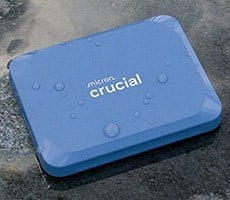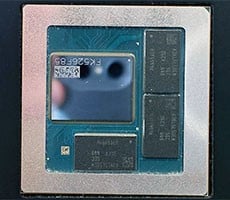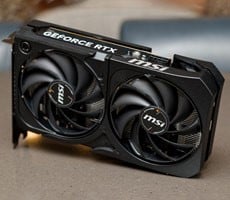OCZ Z-Drive m84 PCI-Express SSD Review
As we noted in a previous SSD round-up article, though IOMeter is clearly thought of as a well respected industry standard drive benchmark, we're not completely comfortable with it for testing SSDs, as well as comparing their performance to standard hard drives. The fact of the matter is, though our actual results with IOMeter appear to be accurate, it is debatable whether or not certain access patterns, as they are presented to and measured on an SSD, actually provide a valid example of real world performance, at least for the average end user. That said, we do think Iometer is a solid gauge for relative available bandwidth with a given storage solution. Regardless, here's a sampling of our test runs with Iometer version 2006.07.27 with the OCZ Z-Drive and our complement of Intel's SSDs.


Again, one thing to note is the transfer size of our standard Iometer tests. At small 8K transfer sizes, the Z-Drive takes a beating. In this next test, we'll simplify things a bit and show you how the Z-Drive fairs versus a single 160GB gen 2 Intel X25-M SSD but with larger file transfers

Here you're looking at an Iometer test run that is similar to our Workstation test pattern, except that we've taken the transfer request size up to 64K, which actually isn't all that large. Though overall IO throughput it lower since obviously it takes longer to transfer the larger file size, you can see the OCZ Z-Drive outperforms the Intel SSD by a large margin, on the order of about 40%.
So let's recap. The Z-Drive's strong suit is larger, sequential file transfers. Where it falls down is with respect to a heavy workload of small random read/write operations. We've observed this in a number of scenarios thus far in our testing. Let's look at a usage model that should play to the Z-Drive's strength, next.







